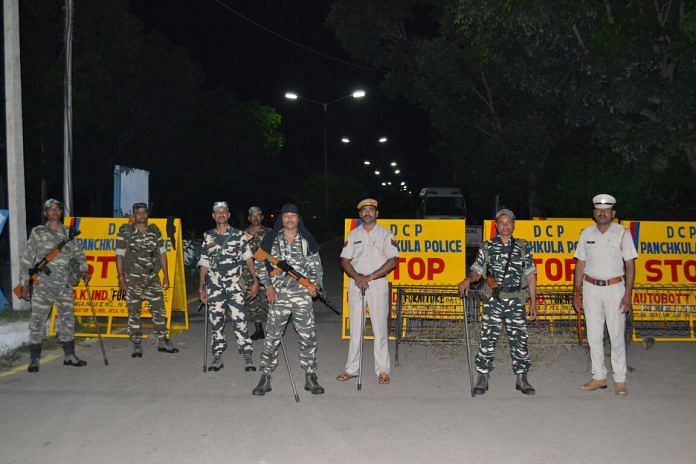Had it not been for the judiciary’s admonishment of the government on 23rd August, we would have seen more violence, destruction of property.
The acute lack of governance and cluelessness displayed by the administration in Haryana and the inability to anticipate events in advance, plan for contingencies has given rise to the desperate fire-fighting we witnessed at Panchkula on 25 August. This is what passes for our so-called governance.
All the newspaper headlines in recent days were about the impending situation: “Uneasy Calm, Tricity on the Edge”, “Lockdown in Punjab, Haryana, Army called out, curfew in Sirsa”, “D-Day Today: Tricity on the Edge”, and “Dera Followers Fan Out before Verdict”. Both the media and the common citizen were fully aware of the likely crisis. Yet, apparently the administration was apathetic till the High Court of Punjab and Haryana admonished the state government about not controlling the spate of ‘premis’ (as the followers of the so-called God-man Ram Rahim are called), even though Section 144 had been imposed.
The Ground Zero where the police had placed elaborate barricades for preventing non-authorised people to move toward the court complex is just about 80 meters from my house. As events unfolded, three things were absolutely clear to me.
Firstly, the administration as well as the police of all types had only two major aims – to ensure that the court complex was sealed completely; and the accused was brought safely, without any hindrance to the court in time. Little attention, if any, was paid to how the ‘premis’ would react to an adverse verdict, or the safety of the life and property of citizens. All this while, the influx of ‘premis’, who reached Panchkula from a number of states, continued unabated and no attempts were made to control them.
As a result, when the court’s verdict became known, the ‘premis’ quickly reacted with violence. Initial attempts by the police force were repulsed by the ‘premis’, and the police retreated (a euphemism for running back pell-mell). Thereafter, the ‘premis’, described more than once by Ministers of the state government as peaceful disciples, went on a rampage like ‘goondas‘. They set fire to any vehicle in sight; assaulted media persons, especially cameramen; and set fire to nearby government buildings, including the offices of the Income Tax Department and of the Life Insurance Corporation (LIC).
During this violence was, the convict was whisked away by helicopter to another city. All this while there was no discernable increase in police deployment to prevent the hooliganism.
Had it not been for the judiciary’s admonishment on 23 August, we would have seen more violence and destruction of property. We must compliment the Justices of the Punjab and Haryana High Court for their timely and firm admonishment, otherwise the political leaders would have continued to direct the police to go easy, so that there was minimum adverse impact on their vote banks.
Some fundamental questions arise: Why can nothing substantive be achieved in our country without calling in the army? When will the police as well as the Central Armed Police Forces (wrongly referred to as para military forces by the media and others) be sufficiently trained to carry out tasks that fall fully and completely in their domain? Do seven decades of independence and increasing salaries have no relationship to their output? When will the political leadership dig out the recommendations of police reforms from their musty cupboards and implement them? Maybe they continue to be ‘jumlas‘.
As far as the laxity of the administration is concerned, offering excuses and the practice of passing the buck have already started and will most likely gather pace in the coming days. The incompetence of the political leaders may again be papered over as was done in the aftermath of the infamous Jat Agitation, under the same leaders. Some middle ranking and junior officers may be suspended for a while and reinstated again, while the ubiquitous bureaucrat will again get away.
Vijay Oberoi is Former Vice Chief of Army Staff, and lives in Panchkula.



